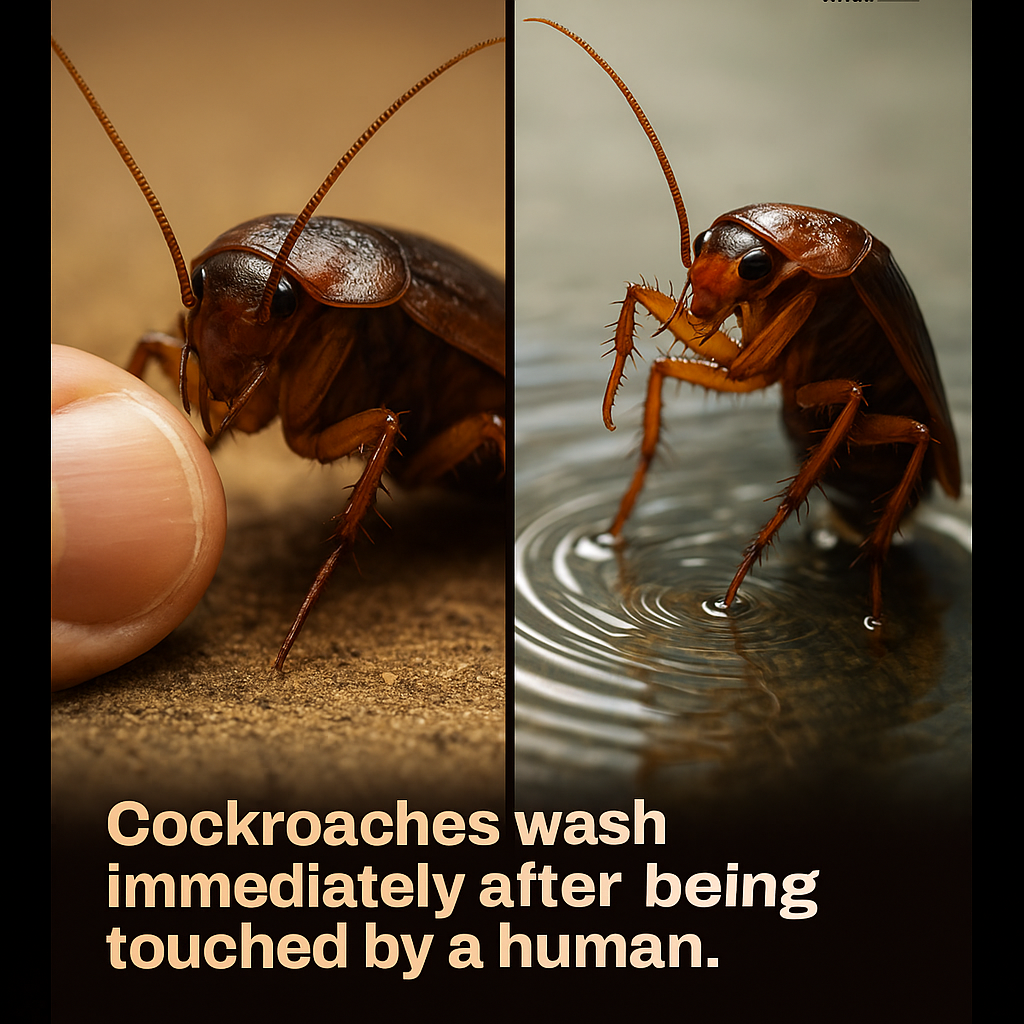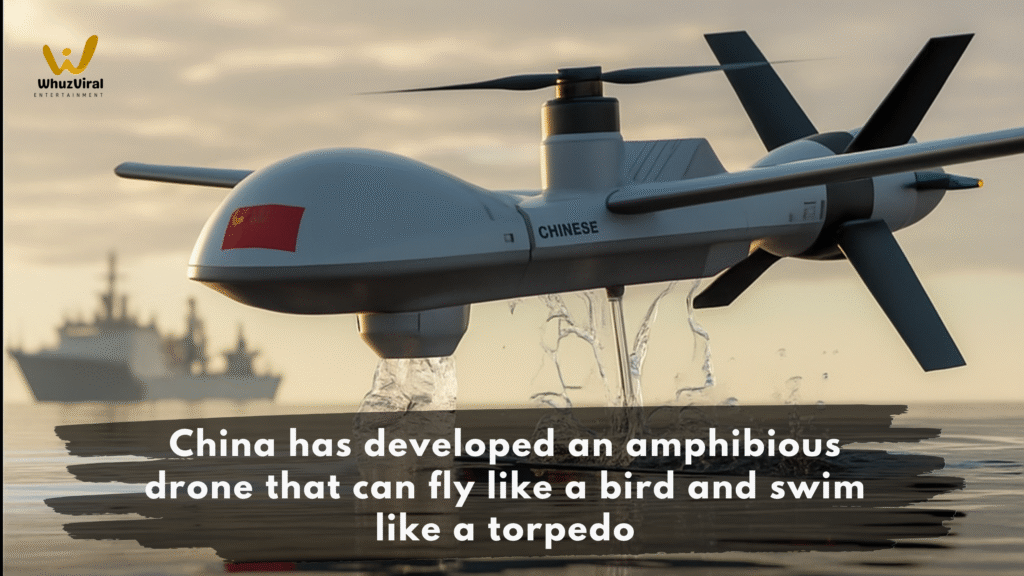Introduction: Cockroach Grooming—The Clean Habit We Overlook
“Cockroaches wash immediately after being touched by a human.”
Sounds almost personal, right? As if these resilient little creatures are offended by us. But here’s the twist: cockroach grooming has nothing to do with disgust—it’s pure biology.
Despite their dirty reputation, cockroaches are meticulous groomers. The moment a human finger brushes against them, they don’t run to therapy; they simply start scrubbing. Why? Because their survival depends on it. Oils, sweat, and chemical cues from human skin can throw off their ultra-sensitive antennae and legs—the tools they use to explore, smell, and navigate their environment.
And so, they clean. Not out of judgment. Not because they think we’re gross. But because evolution wired them to do so. In this post, we’ll explore why cockroach grooming is one of nature’s most fascinating, misunderstood rituals—and why it might change the way you look at these so-called pests forever.

1. What Exactly Is Cockroach Grooming?
Cockroach grooming is an intricate cleaning behavior where roaches methodically use their legs and mouthparts to wipe down their antennae, legs, and even their bodies.
Here’s what happens during the process:
- Antennae Cleaning: They draw each antenna through their mouthparts to remove debris and restore sensitivity.
- Leg Scrubbing: Their spiny legs act like natural combs to dislodge particles.
- Self-Polishing: They often rub their body segments to remove contaminants.
This routine is not optional—it’s a survival necessity. Without clean sensory organs, a cockroach would struggle to detect food, mates, or danger.
2. Why They Wash After Touching Humans
When a cockroach comes in contact with us, it immediately starts to groom itself. But here’s the key: it’s not personal.
Human skin contains:
- Oils
- Sweat
- Chemical residues (from soap, lotion, or perfume)
- Microscopic dirt
These substances interfere with a cockroach’s highly specialized sense of smell and touch. To restore precision, the insect must clean itself—fast.
This behavior isn’t disgust. It’s survival biology. Just as we might wipe smudges off our glasses, cockroaches “wipe” themselves clean to see (or rather, sense) the world clearly again.
3. The Science Behind Their Cleaning Instinct
Cockroach grooming has been studied extensively in entomology. Research shows that grooming is linked to their olfactory system (sense of smell). Their antennae contain chemoreceptors—tiny structures that detect scents and pheromones. Even the smallest layer of foreign oil or debris can impair this ability.
🧪 Fun Fact: A single cockroach antenna can contain over 150,000 sensory neurons!
If these sensors are blocked, a cockroach is effectively “blind.” Grooming restores their accuracy, making it one of the most vital survival behaviors in their repertoire.

4. Debunking the “Dirty Cockroach” Myth
We often equate cockroaches with filth. After all, they thrive in garbage-filled environments, right? Well, yes… but context matters.
Cockroaches groom obsessively. In fact:
- They clean more frequently than many pets.
- Their grooming rituals are comparable to cats (minus the purring).
- Even in dirty environments, they work tirelessly to remove contaminants from their bodies.
They’re not “dirty” by choice—they’re survivors adapting to wherever we force them to live.
5. The Hidden Beauty of Their Survival Ritual
It’s easy to dismiss cockroach grooming as creepy, but there’s something oddly admirable about it.
- Resilience: They’ve been perfecting this behavior for over 300 million years.
- Precision: They clean with mechanical efficiency, maintaining their biological sensors.
- Persistence: No matter the environment, they don’t stop grooming.
In an ironic twist, the insect we often associate with dirt is one of nature’s most consistent self-cleaners.
6. What We Can Learn from Cockroach Grooming
While we may not want to take grooming tips from cockroaches (thankfully), there’s a lesson hidden in their behavior: rituals matter.
Just as cockroaches restore their senses through cleaning, we, too, need rituals to maintain clarity—whether it’s tidying our desks, meditating, or taking breaks from technology. Grooming for them is survival; for us, it’s sanity.
7. Final Thought: It’s Not Disgust, It’s Biology
The next time you see a cockroach grooming itself, remember: it’s not judging you—it’s just doing what evolution programmed it to do. This misunderstood behavior is a testament to nature’s brilliance.
In a world where we call them pests, maybe it’s time to see cockroaches for what they really are: relentless survivors with a surprising touch of cleanliness.

FAQ Section
1. Why do cockroaches groom so often?
Cockroaches groom to remove debris and chemicals from their antennae and legs, restoring their sensory precision.
2. Do cockroaches wash because they think humans are dirty?
No. Grooming is instinctive and biological—it’s about cleaning their sensory organs, not passing judgment.
3. Is cockroach grooming similar to how cats clean themselves?
Yes, in some ways. Both are methodical and frequent behaviors designed to maintain hygiene and functionality.
4. Does cockroach grooming make them less harmful?
Not entirely. While they clean themselves, cockroaches can still spread bacteria if they’ve been in contaminated environments.
5. Can cockroach grooming help scientists?
Absolutely. Studying their grooming behavior provides insight into insect sensory biology and pest control strategies.
6. What triggers cockroach grooming after contact with humans?
Oils, sweat, and chemical residues from our skin interfere with their sensors, prompting immediate cleaning.
The ICC’s Charges Against Rodrigo Duterte
Introduction: When Domestic Power Meets International Justice On a humid September morning in 2025, news…
A Father’s Burden: Turning in His Own Son, Tyler Robinson, in Charlie Kirk Case
Nine days ago, lives changed forever on the campus of Utah Valley University. A public…
Groundbreaking “Third Nostril Surgery” Saves 19-Year-Old from Deadly Spinal Tumor
When medical experts call something “inoperable,” most patients feel their hope collapsing. Yet, medical history…
🚨 Ghost Flood Control Project in Bulacan: Marcos Orders Blacklist and Legal Action Against Contractor
Video: President Ferdinand “Bongbong” Marcos Jr. inspects the alleged ₱55-million “ghost” reinforced concrete river wall…
China Drone That Flies and Swims: 7 Stunning Facts About the Shape-Shifting SeaDuck
In a coastal testing facility near Shandong, China, a team of engineers has achieved what…
Nearly 4,000 Undocumented Filipinos Face Deportation from the US: A Wake-Up Call for OFWs
🧭 Introduction: Why This Matters to Every OFW As an OFW currently teaching English in…






